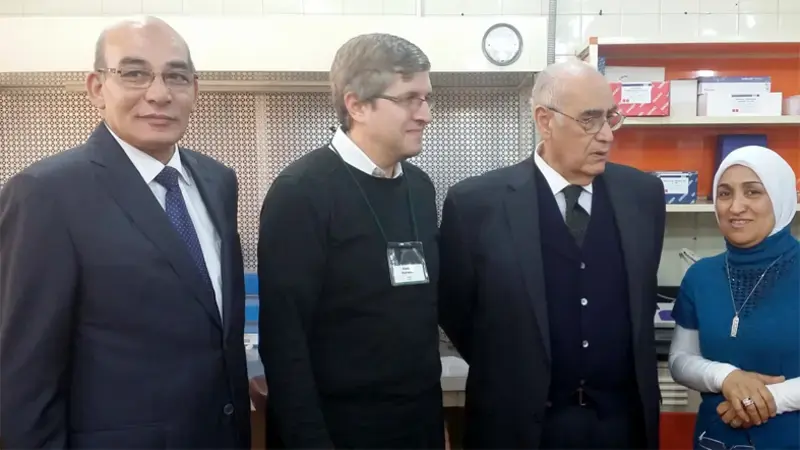Egypt: Strengthening crop science

ICARDA’s biotechnology laboratory in Cairo plays a key role in breeding the country’s future crops – helping farmers in Egypt, and beyond, to grow crops that are resistant to a host of biophysical constraints, pests, and disease.
Currently, the lab is developing molecular markers linked to a range of biotic and abiotic stresses in wheat, barley, lentil, chickpea, and faba bean, helping to strengthen the efficiency of breeding. It is using advanced technologies – SNPline and a next generation sequencer – to apply marker assisted selection, re-sequence genotypes, and develop more powerful markers.
Over the coming year, scientists aim to establish a protocol for accelerating breeding cycles, developing markers more tightly linked to genes of interest, and providing capacity strengthening opportunities for researchers. The lab also hosts 14 trainees – three MSc and 11 PhD students – from Morocco, Jordan, Syria, Sudan, Palestine, and Egypt. These efforts provide a real chance to strengthen regional food security.
In recognition of its work, the lab was recently visited by Egypt’s Minister of Agriculture and Land Reclamation, H. E. Dr. Adel El-Beltagy. Dr. El-Beltagy is no stranger to ICARDA – he served as the Center’s Director General between 1995 and 2006, overseeing its expansion and the strengthening of its partnerships with national research institutions.
The visit provided an opportunity to hear more about the lab’s plans and the collaboration between ICARDA and Egypt’s Agricultural Research Center (ARC) and Genetic Engineering Research Institute (AGERI), which hosts the lab. Dr. El-Beltagy reiterated the government’s support for ICARDA activities and promised additional facilities to ensure the Center could continue delivering its research outputs.
Egypt also hosts ICARDA’s Nile Valley and sub-Saharan Africa Regional Program, which addresses the region’s challenges through innovations in irrigation technologies, improved wheat varieties, stronger wheat-legume cropping systems, and more robust seed systems.
